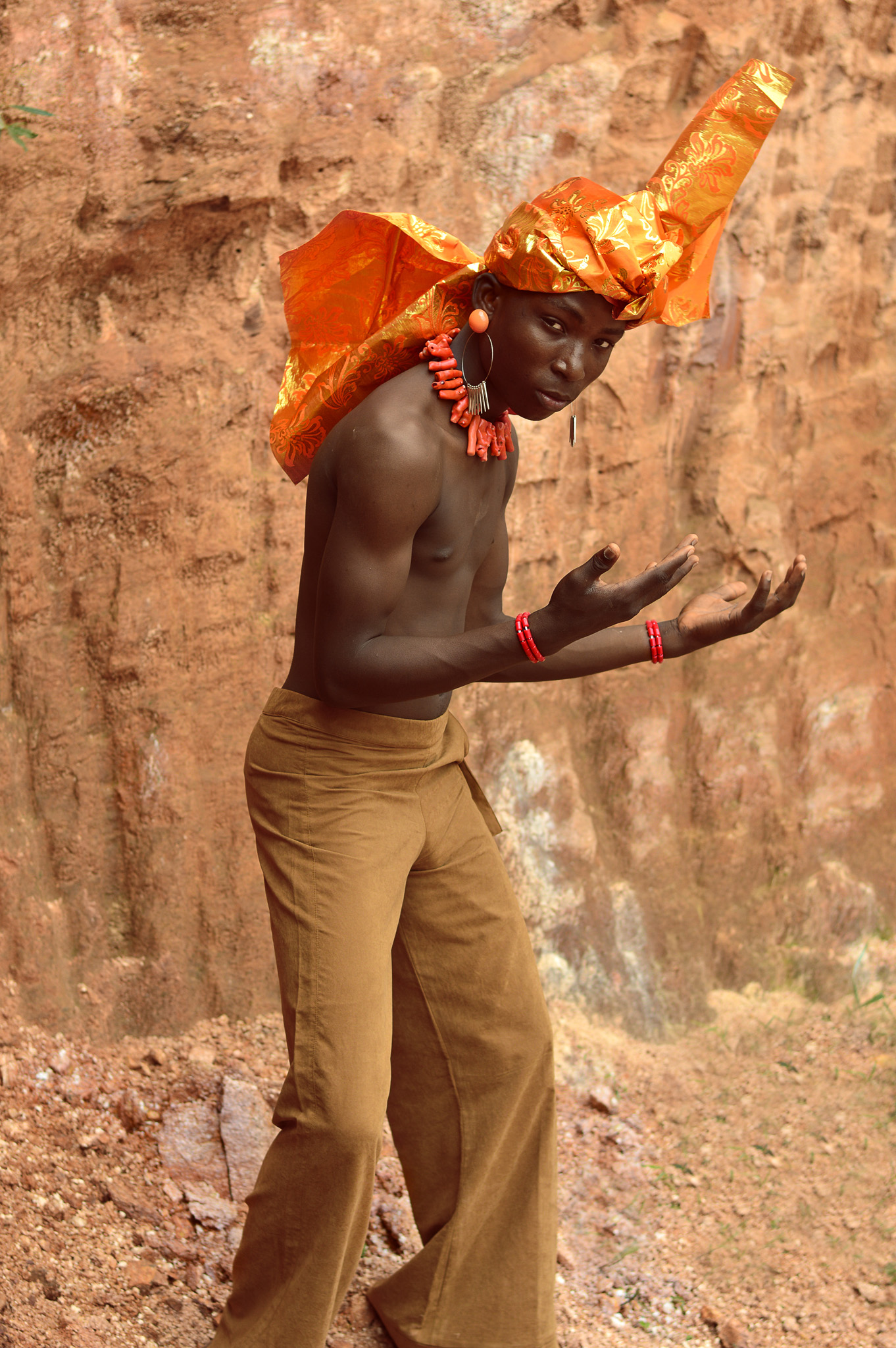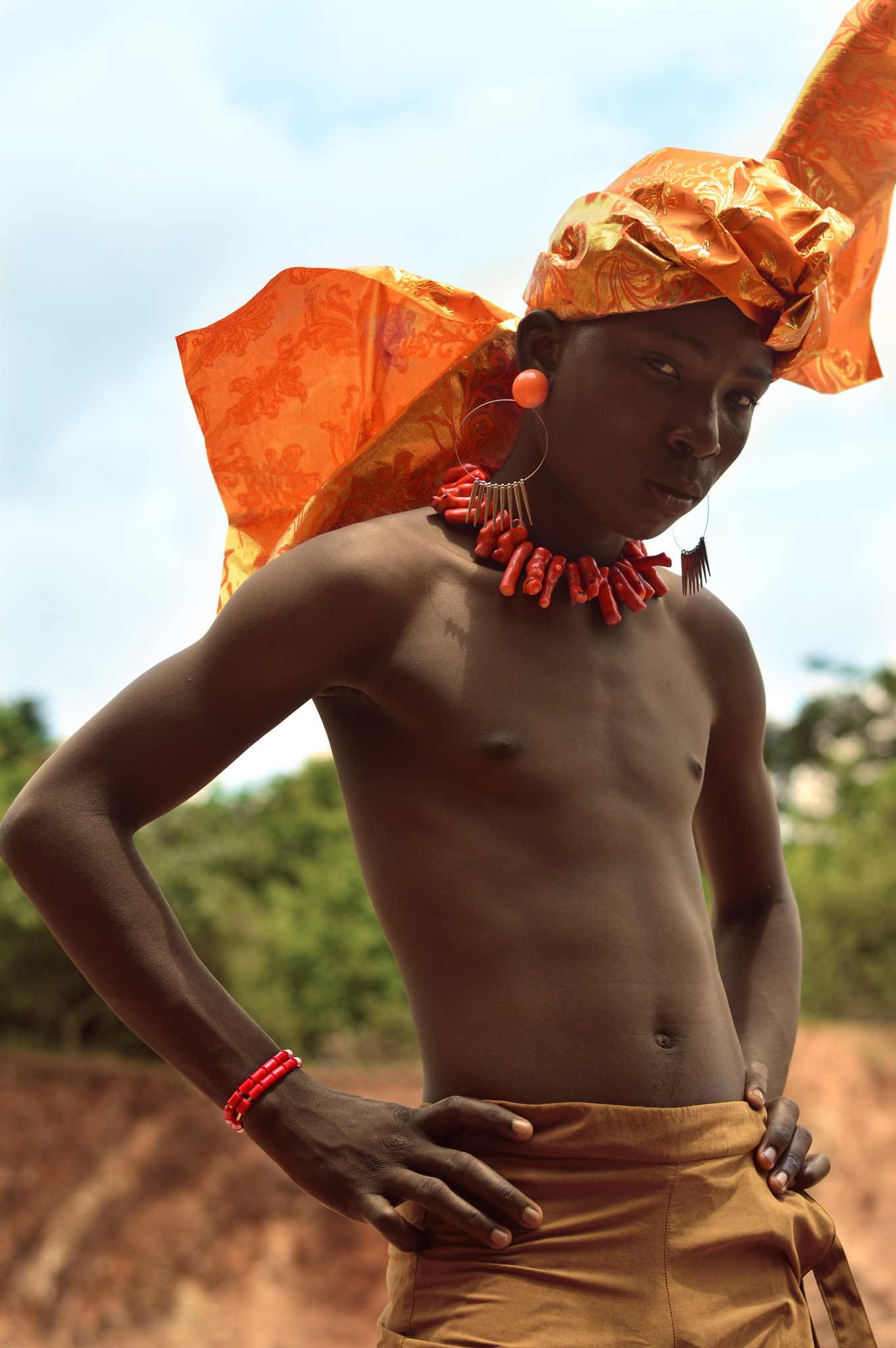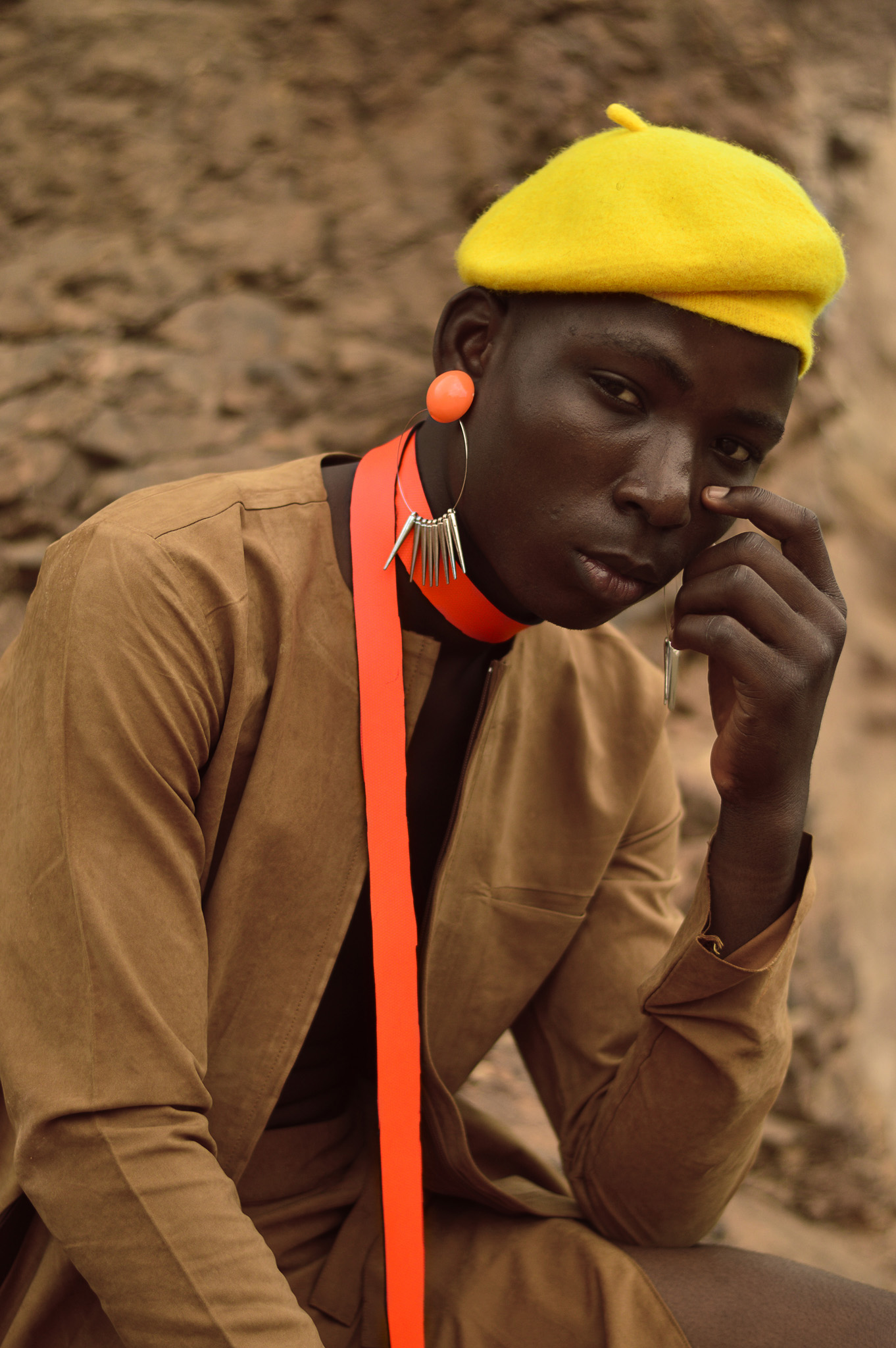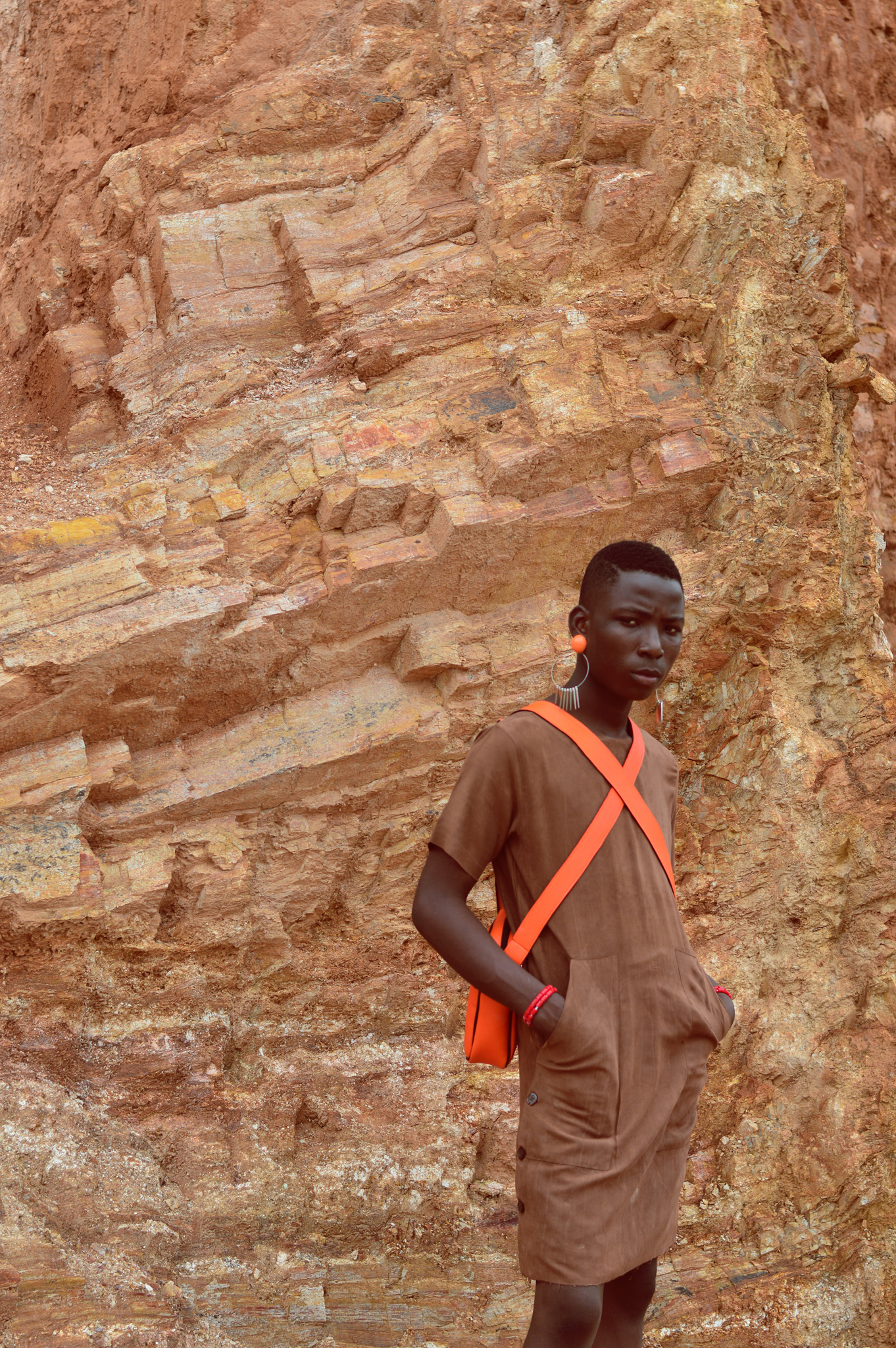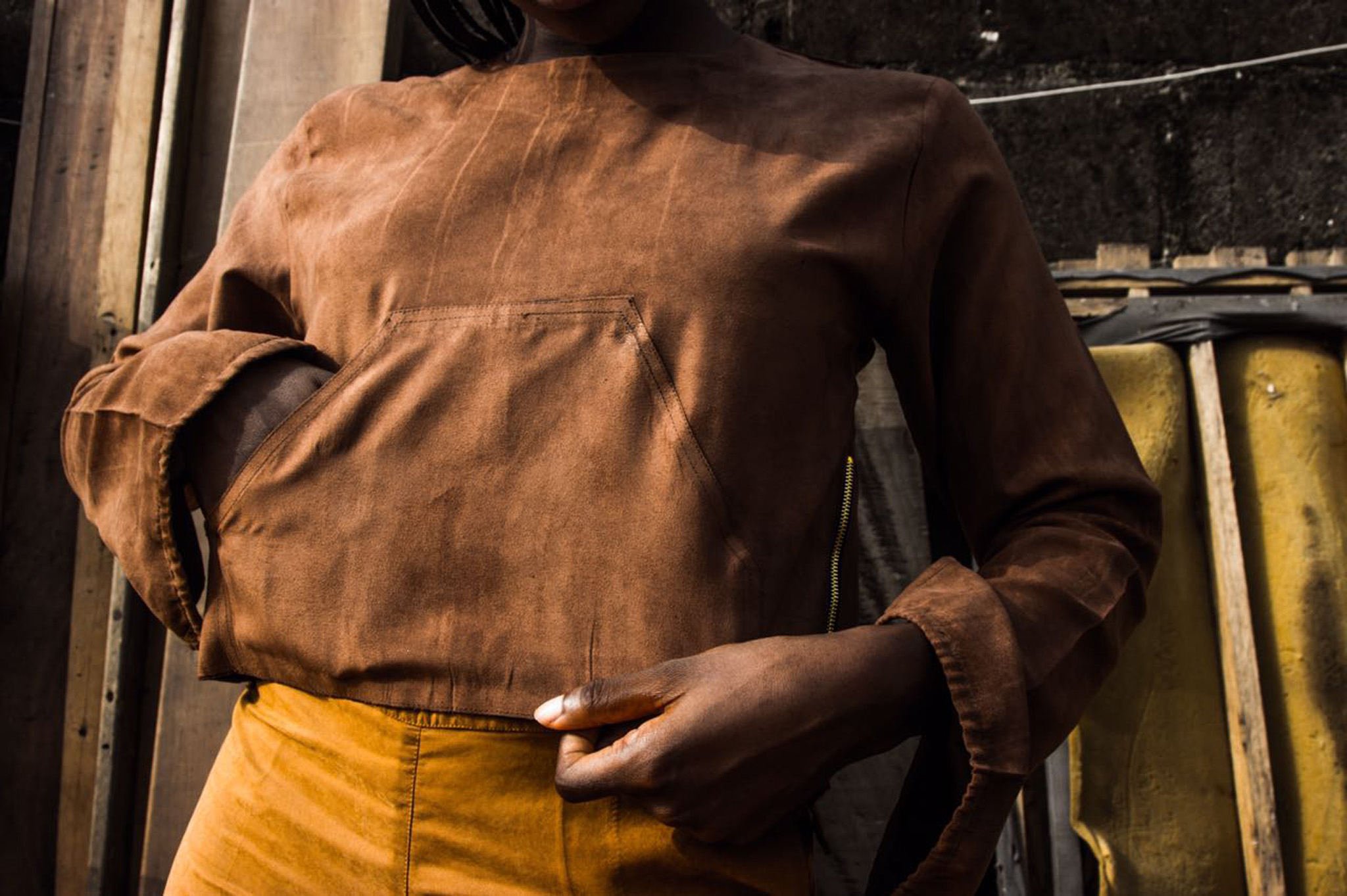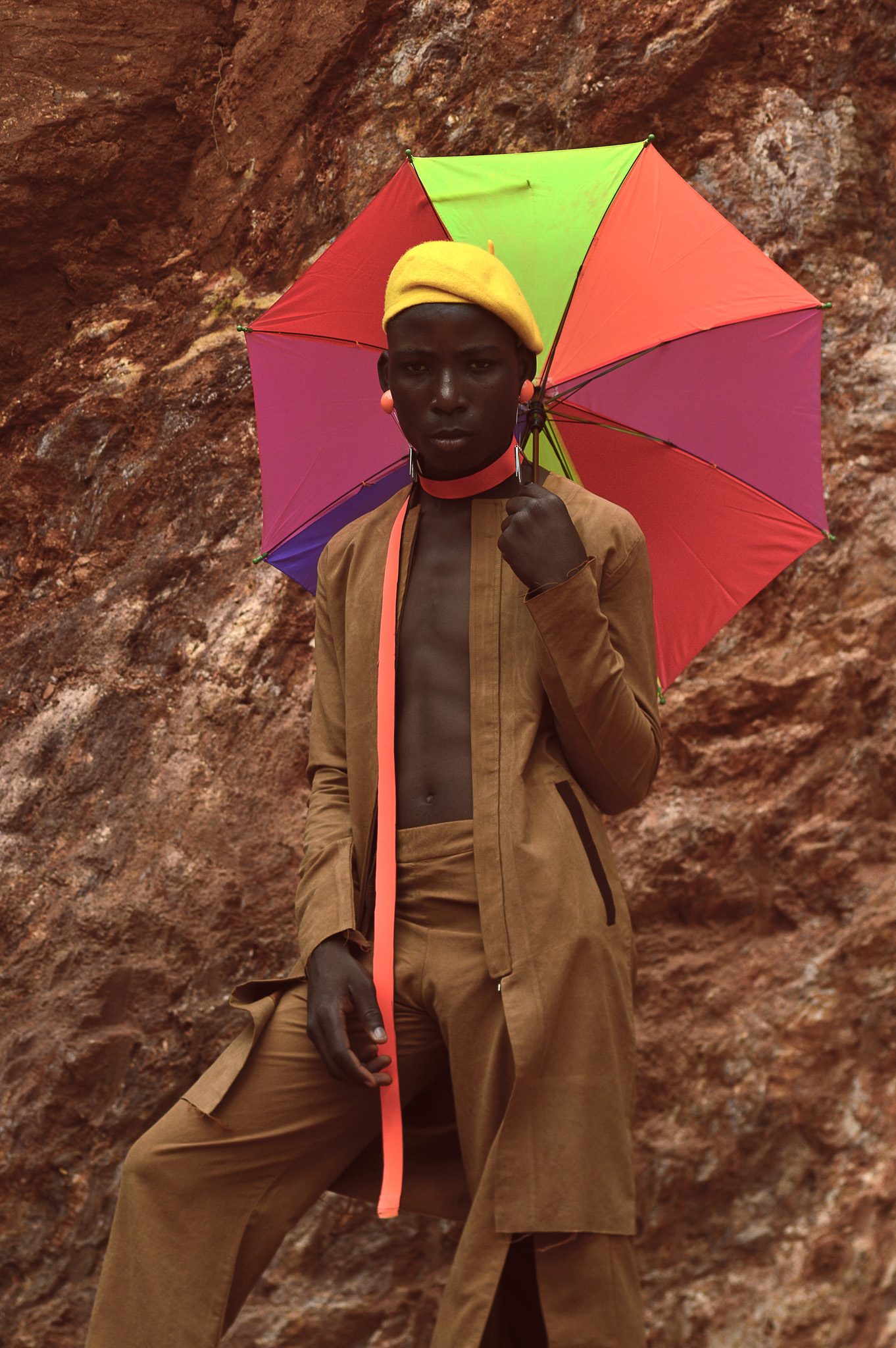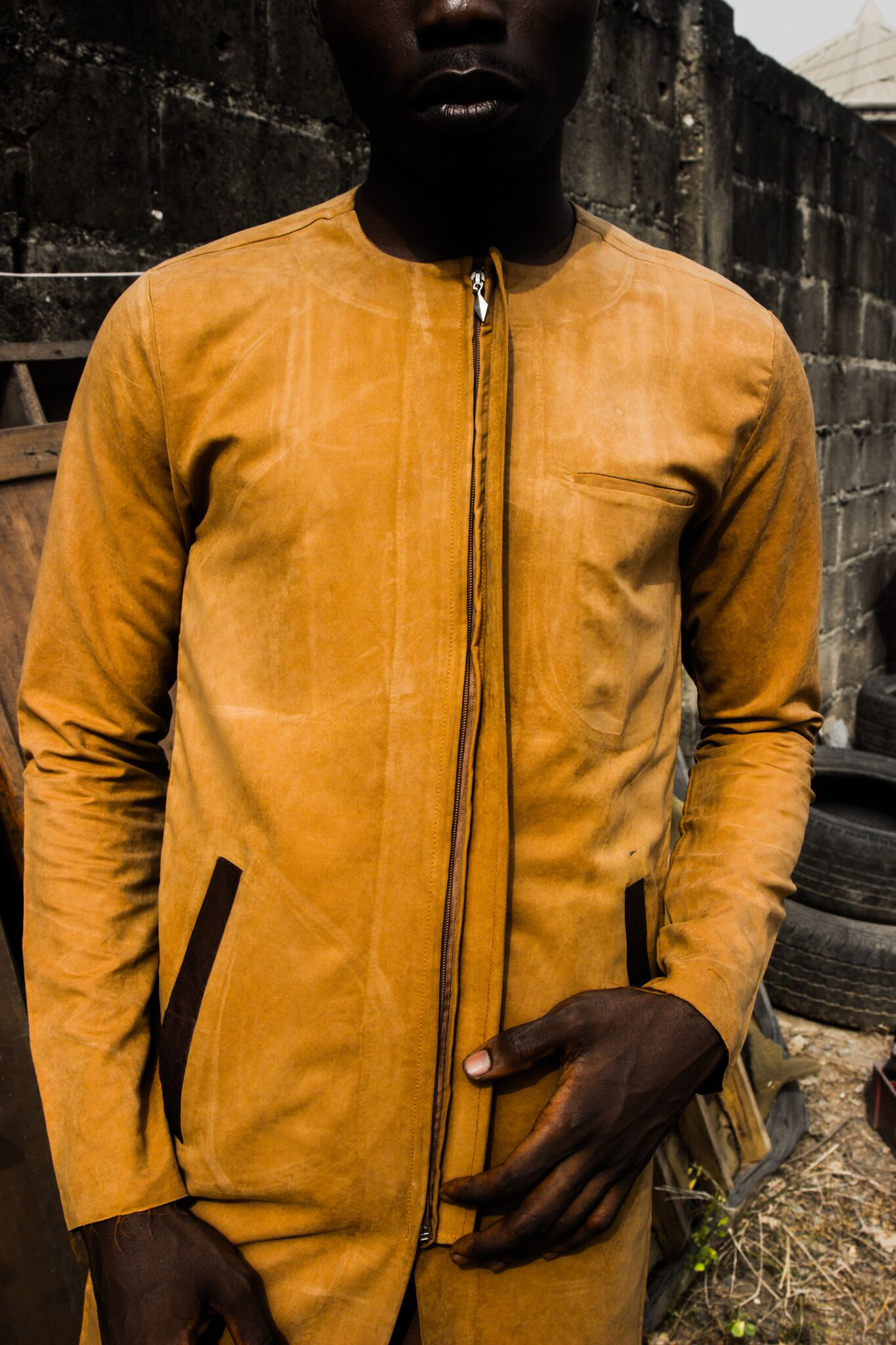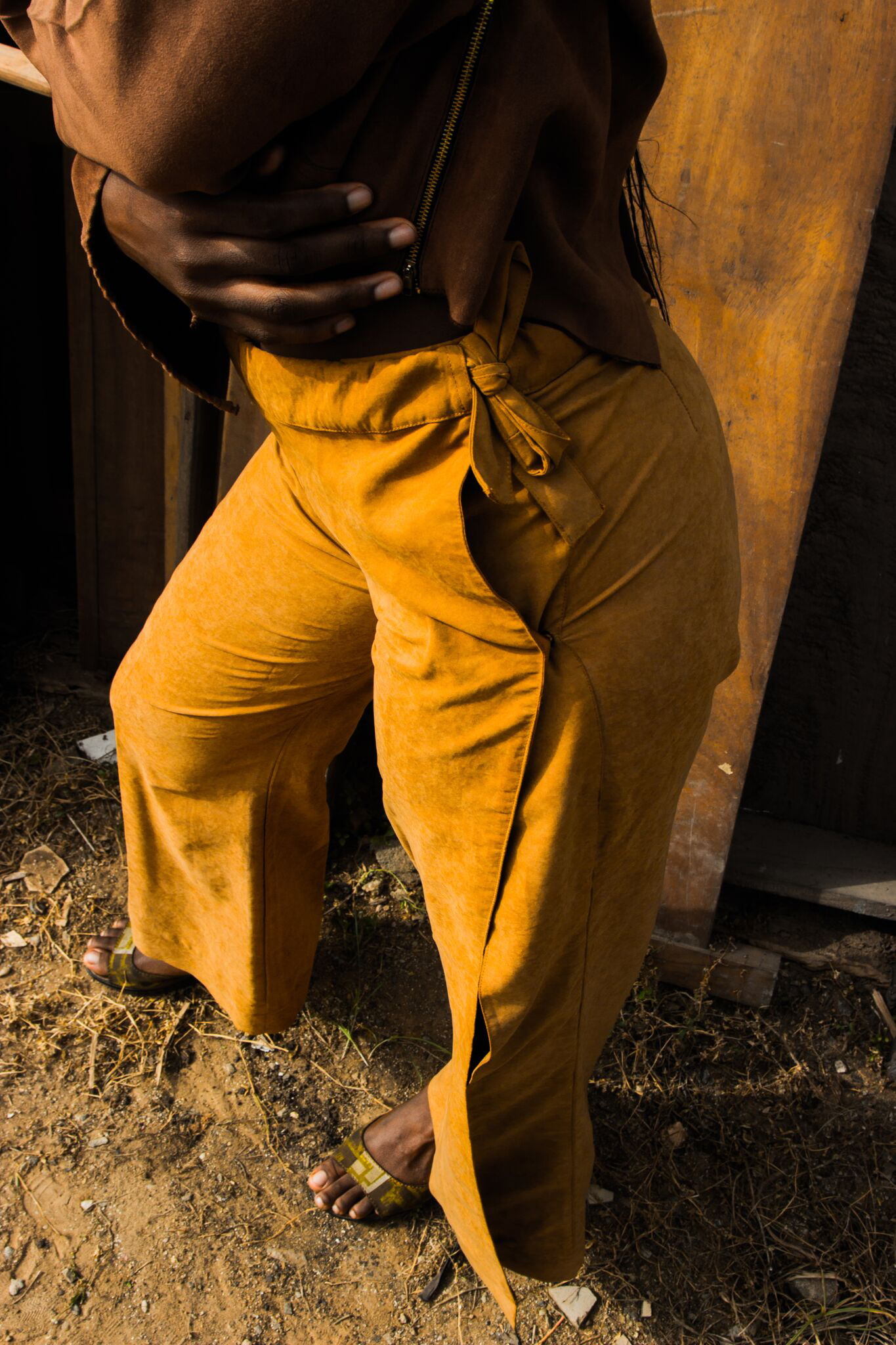Meet Pith, the fresh Nigerian brand that’s documenting the millennial experience
“We use Pith to create pure art through imagery and fashion. When you look back at our different drops, you’ll be able to see what was happening in Africa at that particular time.” We’re speaking to Lagosians Adedayo Laketu and Cosmos Ojemen about their emerging dual-sex brand, Pith. Founded in 2016, Pith uses fashion to express the essence of the millennial experience. Each capsule collection, or Dilly, aims to act as a snapshot of contemporary culture and represents a chapter in a longer story, the tale of modern Nigeria. “We’re talking about what we're seeing around us and how we want to explore it,” says Ojemen. “We're scriptwriters, writing as we go, and we hope to show people what it is to be African.”
For Dilly one, released in February 2017, minimalist pieces were crafted from a rich brown suede and then documented through film and photography. “Dilly means remarkable, it's like a conversation,” explains Ojemen. “We need to love ourselves, accept who we are, embrace our individuality and our skin. Until recently, Africans were represented as primitive, as vile, and it was as though nothing good can come out of Africa – but that's a lie. The first mini-collection focused on acceptance. We used brown suede to represent the beauty of our skin, while the clothes represent what's true and real.”
“We hope to show people what it is to be African”
For Spring 2018’s Dilly two, influence was drawn from the global popularity of luxury streetwear. Their raw and fluid designs included cargo pants, logo t-shirts and body bags in an earthy orange colour palette. “The orange fabric is in line with the vibrancy of Africa,“ Ojemen says. “Africans love vibrant colours and so it represents our essence.” The ethos of streetwear is also a celebration of black excellence and a symbol of revolution. “Streetwear originated from a group of people whose fashion ideals were not being met,” explains Ojemen. “The underlying principles represent something that is going on right now in the African timeline - there is a revolution, a new age as we find a voice through our clothes. It’s also about our love for Virgil Abloh and the boom of all of the black creatives right now.”
Being so embedded in the culture allows Pith to be incredibly agile while also reflecting society back at itself. Collections are not confined by seasons or trends and instead interact with those people by sparking fresh perspectives. “We've started the abstract process of Dilly 3, which looks at women being recognised as autonomous individuals. This is a conversation that’s long overdue from a African perspective,” Ojemen says. Laketu agrees, saying: “Now there's a lot of consciousness in Africa about the identity of women. We know our culture and we know how fucked up it is.”
So how did these likeminded souls come together originally? Both were studying at Babcock University, and on the evening they came across each other they wound up having an intense fashion-focussed dialogue. “We spoke for the whole night, it was mad,” reflects Lateku. “We knew so many people weren't having these conversations and it felt as though maybe we were somehow chosen to come up with these kinds of ideas.”
Joining Lateku as artistic director and Ojemen as creative director is the third member of the collective, head of operations Emeka Anazodo, who completes the Pith family. “Emeka's really business oriented and in fashion you always need to have that,” says Ojemen. “We knew from the beginning that we wanted to do something approachable, but it's also important for us to build our brand to be as profitable and reputable as Gucci, Louis Vuitton or Off-White,” enthuses Laketu. “We're like brothers, we fight a lot, but at the core of what we want to do - which is to grow and influence fashion, to be ground breaking - we share the same taste level and ideals.” With their responsive aesthetic and natural talent for authentic storytelling, we can’t wait to find out what Pith’s next chapter unfolds.
Visit Pith
Published on 29/12/2018



